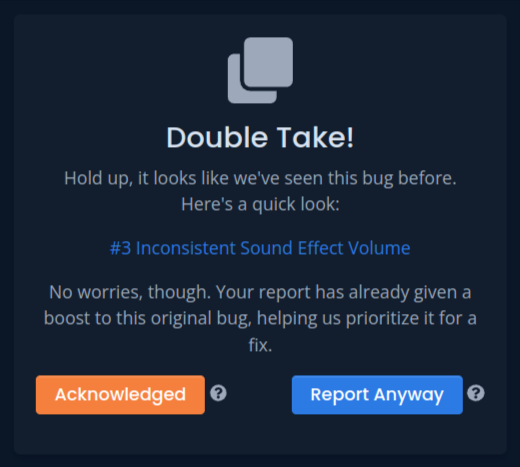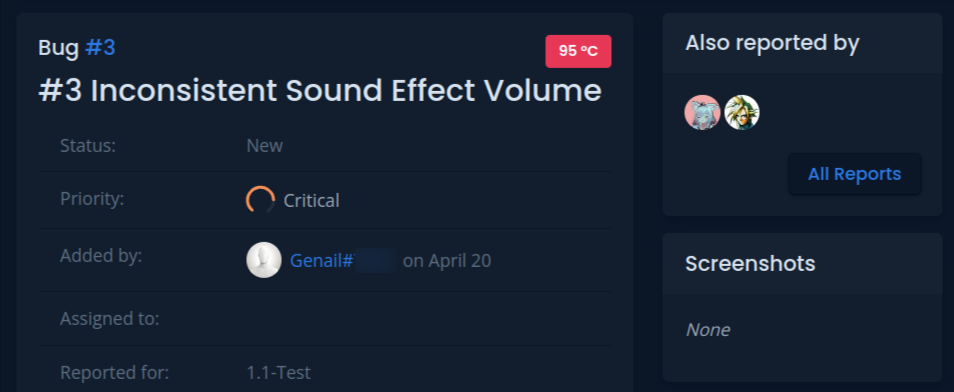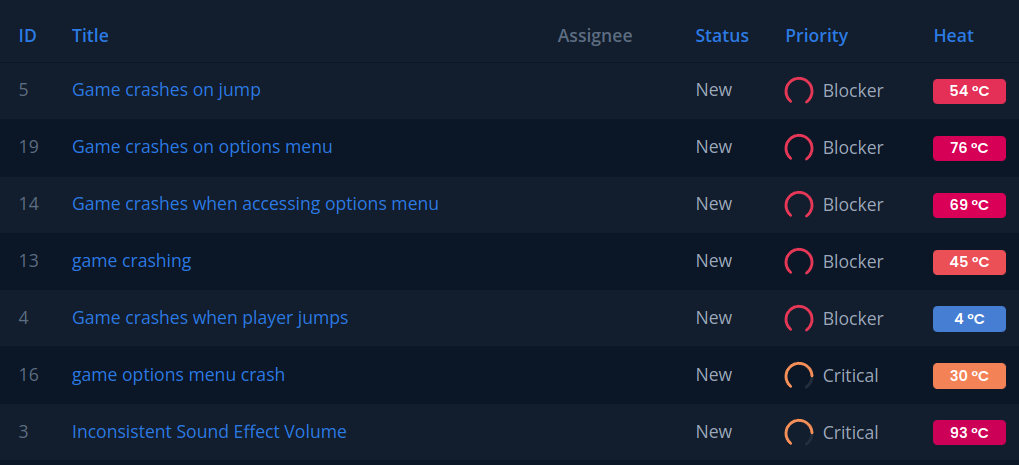BetaHub Blog
How BetaHub Manages Duplicates
May 24, 2023
Let’s face it: most of us don’t want to jump through hoops just to report a bug or suggest an idea. You notice something weird in-game or think of an improvement—so you just want to tell someone and get back to playing.
But here’s the catch: making users check if their bug or suggestion already exists is a classic blocker. Not everyone has the time, energy, or even desire to browse through lists or search databases before hitting “Submit.” Worse, the fear of being called out for posting a duplicate can actually scare people off from reporting at all.
We get it. We’ve been there too.
BetaHub’s Fresh Take: Just Report, We’ll Handle the Rest
At BetaHub, we believe in removing friction. Instead of forcing you to check for duplicates—or risking the awkward “hey, that’s already reported!” reply—we empower you to share your feedback freely.
Your job: just report what you see or think.
Our job: use smart tech to sort it out behind the scenes.
Why Duplicates Are Actually Good
For a long time, “duplicate” was a dirty word in bug tracking. Not anymore! Every duplicate is a signal that more players are noticing a problem, which means it probably deserves more attention.

When someone files a duplicate on BetaHub, it’s not a mistake—it’s valuable feedback. Your words, screenshots, and clips get saved, and your report strengthens the case for that issue. No one gets called out or shamed for “not searching first.”
It’s all about amplifying community voices.
How Do We Connect Duplicates? (Hint: It’s Not Manual!)
Let’s get a bit technical—but not too much! Every bug, suggestion, or feedback item is run through our AI-powered matching engine. Here’s how it works in simple terms:
- Semantic Matching: We turn your report into what’s called a semantic vector—a fancy way of representing the meaning of your text, not just the words.
- Cosine Similarity: Our system compares the “meaning” of your report to existing ones, even if you use totally different wording. If the AI thinks they’re describing the same thing, it merges them automatically.
- Multiple Angles: Our AI even paraphrases your feedback and checks those versions, increasing the chances of smart matches.
- Smart Grouping: When two (or more) reports match, they’re combined—along with all media and extra details. Nothing gets lost in the merge!

Of course, not every feedback item is easily matched—short, vague, or mixed-topic reports might stay separate, which is by design. We’d rather keep a few outliers than risk merging unrelated things.
Turning Up the Heat: What Really Matters Rises to the Top
Duplicates aren’t just merged—they make issues hotter.
BetaHub uses the Heat metric to track what the community cares about:

Heat is influenced by:
- Number of duplicate reports for the same bug or suggestion
- Upvotes and reactions
- Ongoing discussion or comment activity
The more players see and report the same thing, the hotter it gets. This means your report helps push real issues to the top, ensuring devs see what truly needs fixing or improving—without you ever needing to search or worry about “proper” process.
Manual Control—Still There If You Need It
Sometimes, an automatic match isn’t perfect (hey, AI’s still learning!). That’s why devs and moderators have tools to manually merge, unmerge, or tweak reports. But for the vast majority of cases, it’s hands-off—and a lot less stressful for everyone.
The Big Picture: Making Feedback Friendly, Not Fearful
Our philosophy has evolved: no extra steps, no fear of duplicates, and no “gatekeeping” who gets to report.
Every report is welcome, and every voice helps us build better games—whether you’re the first or the tenth person to notice something.
And the best part? You don’t have to worry about searching, getting scolded, or being perfect. Just report and go.
We’ll take care of the rest.
Looking Ahead: The Future of Duplicate Management
With BetaHub’s AI-driven approach, we’re not just handling duplicates—we’re empowering communities.
Every duplicate strengthens the signal, and every voice helps improve your favorite games.
As AI gets smarter and the community grows, you can expect even better matching, more insightful Heat metrics, and an even friendlier reporting experience.
So next time you spot a bug or get a great idea?
Just report it. We’ll connect the dots.
Join for free today
Supercharge your team with the best bug tracking and player feedback tools. No credit card required, forever free.
Our Mission
At BetaHub, we empower game developers and communities with an engaging platform for bug submission. We foster collaboration, enhance gaming experiences, and speed up development. BetaHub connects developers, testers, and players, making everyone feel valued. Shape the future of gaming with us, one bug report at a time.

2026 © Upsoft sp. z o.o.
